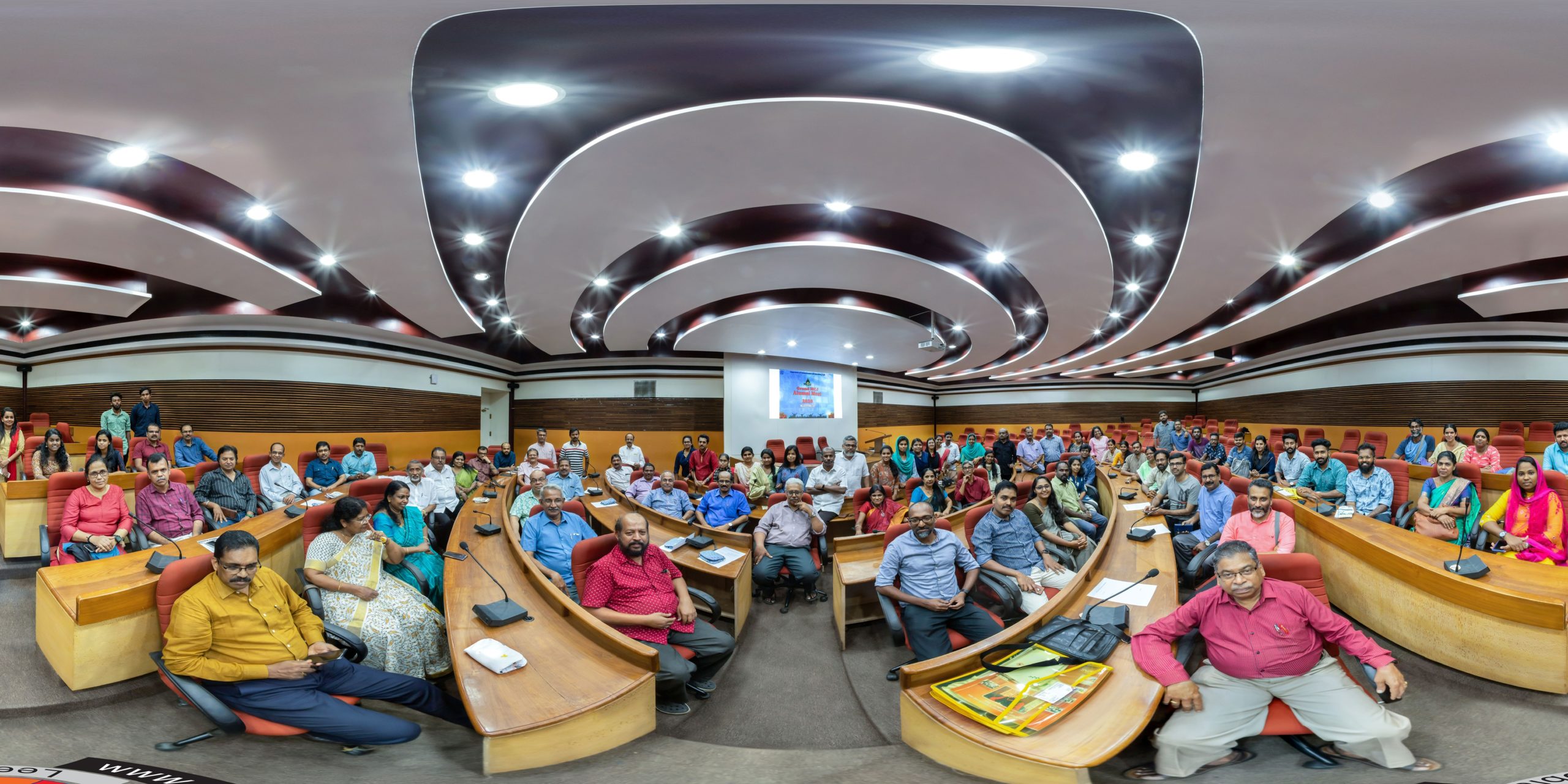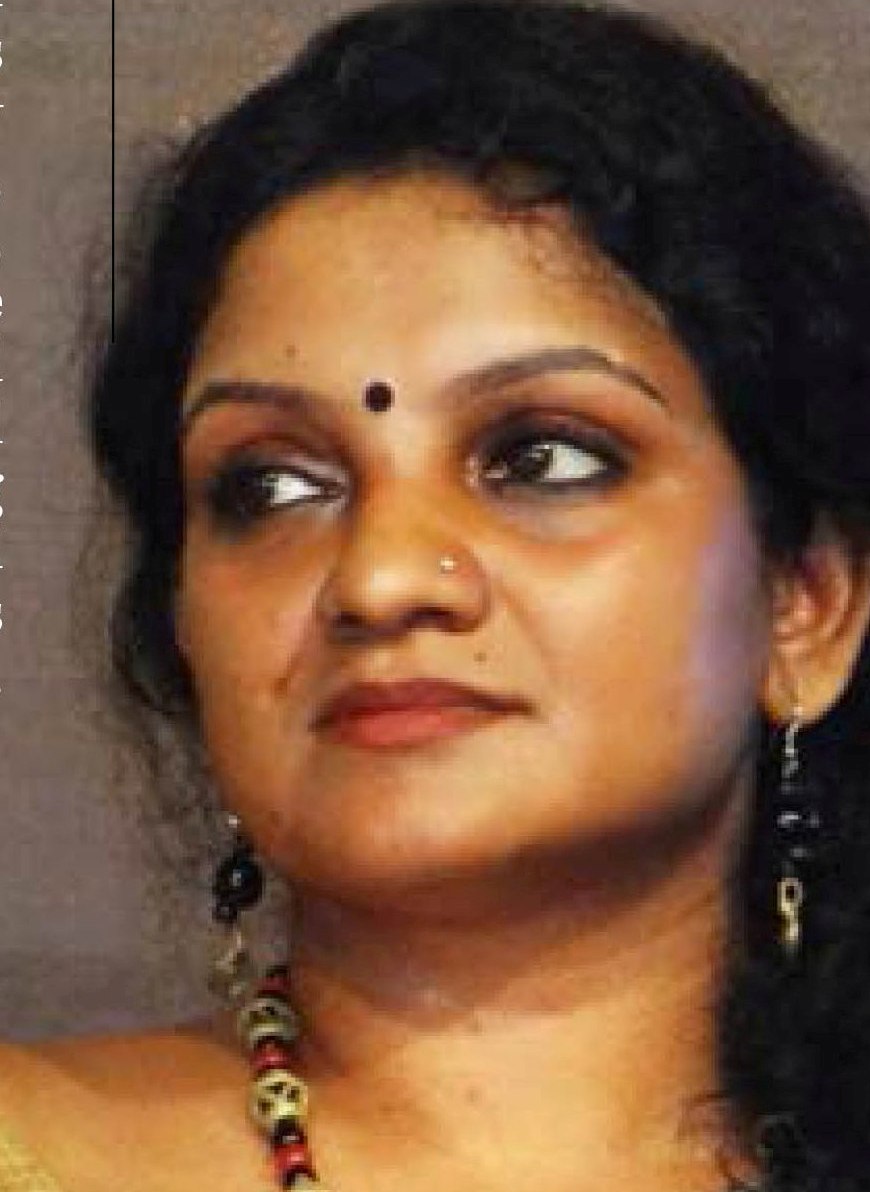Her voice touches our heart, soothes our mind and fills in a beautiful melancholy in our thoughts. Manjari, the multi-talented singer whose voice can give life to different genres of music, be it Hindustani, Carnatic, light music or ghazals, has been enlightening the Malayalee Diaspora with her mesmerizing rendition. She completed her Post-Graduation in music from the Government College for Women, Thiruvananthapuram. Manjari talks about her successful voyage as a musician to Brand Kerala.
“My journey as a musician has been a slow process and is still evolving. I believe it’s a never-ending process. I started learning at the age of five when my mother took the initiative to introduce me to the world of music. My biggest blessing was my Gurus, who trained me to make me what I am now. It takes time for one to shape up into a proper singer and I’m still going through that molding process. I have got training in both Hindustani and Carnatic music and feel that I have a long way to go” she adds.
All genres of music are close to her heart. Her childhood was in Muscat, where she started learning Carnatic music. Even though her parents were doctors, her mother Latha P.M, was very keen on music and it was she who made her learn Carnatic music. Later, Manjari’s interests shifted to Hindustani and for participating in musical contests, she also mastered light music and semi-classical music. The legendary singer, Dr.K.J. Yesudas, happened to visit Muscat once and attended one of her concerts. He asked her parents to make her learn Carnatic music more. That was a turning point in her life.
She says, “Ilaiyaraja sir is one of the legendary musicians I have met in my life. His discipline and dedication in music is a life lesson and a difficult one to copy in our life. He is a mentor and a guide for me. After getting trained under him, I learned how one can surrender to the music completely.”
Manjari was introduced by Ilaiyaraja to the film industry. She considers this as one of her biggest fortunes. The life and music of Ilaiyaraja influenced her a lot. His songs gave her the right breakthrough and reinforced herself as a playback singer She adds, “I have formed a band recently with a bunch of good musicians. They are highly talented. We named us the band ‘Tatvamasi’.” The band creates its own music and sometimes, the application of advanced and recent trends in music is also visible in its performances. The team actively involve themselves exploring newer genres of music and aims to convey a positive message to the society through their music.
Manjari equally loves singing Hindustani, Ghazals, Carnatic and other genres. She starts practicing four to five days prior to her concert for being into that mood of the genre she is performing. According to her, playback singing is much easier because it’s just giving the voice and feel for someone else’s creativity. Manjari’s love for Ghazals is quite famous in the industry. She could get accolades from Ghazal lovers for the mesmerizing rendition of Ghazals.
She says, “My Guruji Ustad Khalid Anwar Jaan was the one who found out my interest in Ghazals. I was very young then to understand the depth and beauty of them. He taught me his compositions; also guided me to learn the intricacies of them. ‘Khayal’, the program which was telecast in Media One channel, was my idea. I am grateful to Media One for accepting my initiative in spreading the meaning of Urdu poetry in Kerala. In Ghazals, there are no particular rules to follow while singing. The lyrics and emotions should be conveyed well. It gives pleasure mentally more than any other genre. Ghazals are enriched with pure poetry too.”
“I have many dreams to achieve and my family gives great support to make them come true. My family consists of my parents and my younger sister. My family is happy and that’s what I need. I owe my prosperity as a musician to my family and my Gurus. Without them, nothing would have been possible for me. It is my responsibility to keep everyone happy including my family and those who love to listen to my music”, she concludes.














